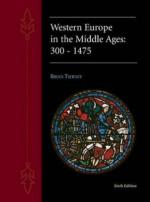|
This section contains 807 words (approx. 3 pages at 300 words per page) |

|
The Duty of Procreation. The medieval church taught that birth control was not only sinful but could actually impede the goals of marriage, one of which was the procreation of children. Consequently, a valid marriage could not be contracted if one of the spouses made it conditional on avoiding the conception of offspring. In the 1230s Pope Gregory IX decreed that if one spouse had never intended to have children and had planned to avoid conception, the conjugal bond was not formed, and no marriage existed between the couple. There is no dearth of evidence, however, suggesting that contraception was practiced throughout the Middle Ages, sometimes more, sometimes less, effectively.
Coitus Interruptus. Perhaps the most common and oldest means of avoiding conception was coitus interruptus. According to the Church, this practice was not Only sinful but had a "polluting...
|
This section contains 807 words (approx. 3 pages at 300 words per page) |

|




